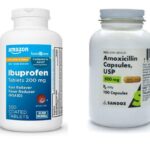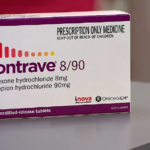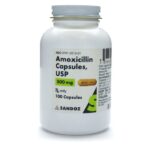Can I Drink Alcohol On Amoxicillin?

Throughout the 10,000 or so years that humans have been drinking fermented beverages, they’ve also been arguing about their merits and demerits. The debate still simmers today, with a lively back-and-forth over whether alcohol is good for you or bad for you.
It’s safe to say that alcohol is both a tonic and a poison. The difference lies mostly in the dose. Moderate drinking seems to be good for the heart and circulatory system and probably protects against type 2 diabetes and gallstones. Heavy drinking is a major cause of preventable death in most countries. In the U.S., alcohol is implicated in about half of fatal traffic accidents. Heavy drinking can damage the liver and heart, harm an unborn child, increase the chances of developing breast and some other cancers, contribute to depression and violence, and interfere with relationships.
Even in small amounts, alcohol may intensify medication side effects such as sleepiness, drowsiness, and light-headedness, which may interfere with your concentration and ability to operate machinery or drive a vehicle, and lead to serious or even fatal accidents.
Because alcohol can adversely interact with hundreds of commonly used medications, it’s important to observe warning labels and ask your doctor or pharmacist if it’s safe to use alcohol with any medications and herbal remedies that you take.
What is amoxicillin?
Amoxicillin is a prescription antibiotic. It’s used to treat infections caused by a certain type of bacteria. It may be used as part of a combination therapy. This means you may need to take it with other medications.
The oral tablet comes as an immediate-release (IR) tablet, extended-release (ER) tablet, and chewable tablet. The chewable tablet and IR tablet are only available as generic drugs. The ER tablet is only available as the brand-name drug Moxatag.
Generic drugs usually cost less. In some cases, they may not be available in every strength or form as their brand-name versions. Amoxicillin also comes as a capsule and a suspension. All forms are taken by mouth.
Why it’s used
Amoxicillin is an antibiotic. It’s used to treat infections caused by a certain type of bacteria. Amoxicillin may be used as part of a combination therapy. This means you may need to take it with other medications.
How it works
Amoxicillin belongs to a class of drugs called penicillins. A class of drugs is a group of medications that work in a similar way. These drugs are often used to treat similar conditions. Amoxicillin works by killing bacteria and stopping its growth in your body.
How should Amoxicillin be used?
Amoxicillin comes as a capsule, a tablet, a chewable tablet, and as a suspension (liquid) to take by mouth. It is usually taken every 12 hours (twice a day) or every 8 hours (three times a day) with or without food. The length of your treatment depends on the type of infection that you have. Take amoxicillin at around the same time every day. Follow the directions on your prescription label carefully, and ask your doctor or pharmacist to explain any part you do not understand. Take amoxicillin exactly as directed. Do not take more or less of it or take it more often than prescribed by your doctor.
Shake the suspension well before each use to mix the medication evenly. The suspension may be placed directly on the child’s tongue or added to the formula, milk, fruit juice, water, ginger ale, or another cold liquid and taken immediately.
The chewable tablets should be crushed or chewed thoroughly before they are swallowed.
Swallow the tablets and capsules whole with a full glass of water; do not chew or crush them.
You should begin to feel better during the first few days of treatment with amoxicillin. If your symptoms do not improve or get worse, call your doctor.
Take amoxicillin until you finish the prescription, even if you feel better. If you stop taking amoxicillin too soon or skip doses, your infection may not be completely treated and the bacteria may become resistant to antibiotics.
Can I drink alcohol on amoxicillin?
No, avoid alcohol and alcoholic products while taking amoxicillin because it is not safe and can increase the risk of dehydration which is also a side effect of amoxicillin due to the likely occurrence of diarrhea.
Dehydration affects drugs that are water-soluble like amoxicillin, increasing their concentration in the plasma just as all dissolved substances are concentrated by loss of water, transforming the medication into a potential toxin. Studies reveal that antibiotics such as amoxicillin are best taken with water because taking them together with fruit juices, dairy products or alcohol can affect how the body absorbs some drugs.
Doctors also advise that you avoid alcohol and alcoholic products in order to give your body the best chance possible to fight off the infection being treated by amoxicillin.
How long after taking amoxicillin can you drink alcohol?
You may need to wait for at least 72 hours after finishing your course of amoxicillin before having any alcohol. Listening to your doctor or pharmacist’s advice can help you avoid the effects of an alcohol-drug interaction.





